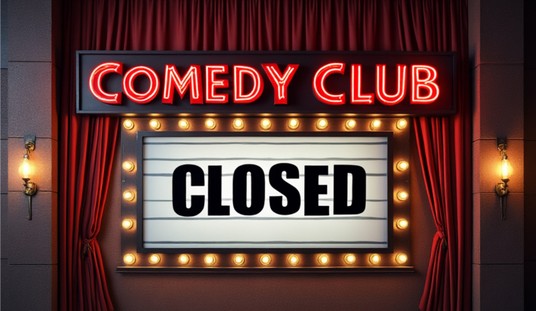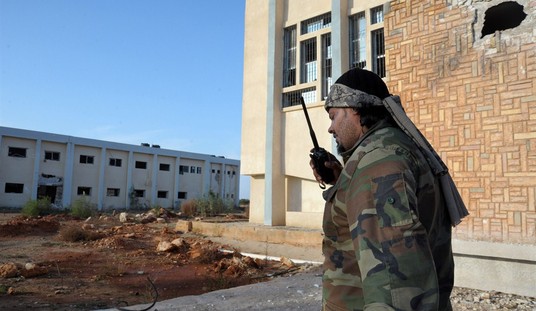The Muslims who have recently been demonstrating and agitating in Norway in reaction to the publication of a Muhammed cartoon in Dagbladet should be asking themselves: What is it about us Muslims that causes so much hubbub? Why don’t any other groups occupy as much space in the public square, in public debate, as we do? Why do we so often represent ourselves as victims, as having been offended, and react with aggression?
Sunday, February 14, marked the 21st anniversary of Ayatollah Khomeini’s death fatwa against Salman Rushdie for writing the book The Satanic Verses — a fatwa that marked the beginning of the contemporary confrontation between Islam and the Christian world. As Kenan Malik notes in his book From Fatwa to Jihad, Peter Mayer, who was then the CEO of Rushdie’s publishing house, Penguin, understood instantly how important the publisher’s public reaction would be, insisting that the firm take the long view. To give in now, he recognized, would be only to encourage future acts of terrorism by people who, for whatever reason, objected to the contents of some book or other.
We’ve grown accustomed to the fact that in our society certain elements of the Muslim population, which make up about three percent of the total population, are all over the media. This situation amounts to a kind of permanent exception in which demands and aggression dominate the picture, along with major doses of victim rhetoric. No other group demands anywhere near as much attention or demonstrates so clearly that it is dissatisfied with our liberal values. What, people ask with concern, will our society be like when Muslims make up 10 percent of it, or 20 percent? How many demonstrators will they manage to muster at University Square in 2020, if something goes against them? Will the police be able to maintain order? What do the events we are witnessing now portend?
To witness the demonstration at University Square was to be reminded of the 1930s, when Vidkun Quisling’s Nazi group, the Nasjonal Samling, held mass rallies at the same spot. There was the same feeling of being in the presence of dark, aggressive forces. No humility; hardly any freedom of thought. Leaders in uniforms copied from the seventh-century Arabic Bedouin culture — a culture that represents the very opposite of humanism, human rights, democracy, and freedom.
What’s paradoxical is this: like other immigrants to Norway, Muslims have had all kinds of benefits served to them on a silver platter by the Norwegian state: full political and civil rights, free education, and health care. We even fund their mosques in the same way that we fund other houses of worship, despite the fact that organized Islam is as much a political phenomenon and a system of laws as it is a religion — a fact plainly illustrated in Oslo last weekend. But many of its adherents are not satisfied; they want more. Or, more correctly, they want less freedom and more Islam in our society.
They should take a look at the UN reports, written by Arabic researchers since the turn of century, about the causes of the deplorable conditions in the Arabic League’s 22 member countries, which share a lack of freedom and low standards of living. Probably the most difficult criticism for them to swallow will be this: the authors of the UN reports (which make up the series entitled “Arab Human Development Reports”) believe that modernity and development are brought about by not mixing politics and religion, and they point up the need for new perspectives, such as “the creation of paradise on earth and the enjoyment of the earth’s bounties.” One report enumerates the values that Muslim countries should strive to cultivate: “curiosity, reason, science, the senses, vision.” The report’s conclusion, in regard to religion, is that it must be liberated from political control. My own conclusion, then, is as follows: that the more sizable the place that Islam occupies in a society, the more it will approach the tragic Arabic conditions from which tens of thousands flee every year. Islam, in short, has not managed to create free societies based on human rights. On the contrary. And everyone should take a serious look at this fact.
The most disheartening aspect of the demo in Oslo was not that Mohyeldeen Mohammed, a clean-cut Wahhabist who oozed Saudi style and spirit, threatened a new 9/11 or 7/7. What was most disturbing was the attitudes expressed by politicians across the left-to-right spectrum. Abid Raja of the Liberal Party was the first to speak out, warning against “violent Muslim raids.” (You’ll have to search far and wide for worse stigmatizing of Muslims than that,) Aamir Sheikh also predicted violence: “I believe there will be trouble. After all, there are 150,000 Muslims living in Norway. Every last one of them has been offended.” Even more serious is the fact that the vice president of the Norwegian Parliament was reading from the same script. Appearing on February 11 on TV2’s all-news channel, Akhtar Chaudhry maintained that Muslims “are harassed and persecuted every day” because “they are Muslims.” He then cited specific instances in which Muslims have been subjected to assault as evidence of how badly they are treated. Contrary to Chaudhry’s claims, however, the most oppressed people in today’s Norway, and in Europe generally for that matter, are the Muslim girls and women who are subjugated and mutilated by their own families, and whom Norway spends hundreds of millions of kroner annually to protect. Not to mention that the group that most actively harasses another group in Europe is Muslims, who employ violence against Jews on a staggering scale. That an elected official in a top government position should contribute to a rise in aggression even as he crudely falsifies reality should have political consequences. Can Kristin Halvorsen, the head of his party, live with his statements?
Chaudhry and his ilk should explain to us why they so rarely express their feelings in public when it really matters — that is, when it is individuals and not alleged prophets and holy texts that are under attack. When a young woman named Faiza is denied love. [Faiza Ashraf, a Norwegian-born 26-year-old woman with Pakistani parents, disappeared three weeks ago. She was most likely abducted and is still missing. It turns out that she has had a Norwegian Pakistani boyfriend for nine years whom her parents would not permit her to marry; they wished instead to marry her off in Pakistan.] When a young woman named Anooshe is murdered. [In 2002, Anooshe Gholam was shot to death outside the courthouse in Kristiansund by the husband she had left.] When Norwegian children are genitally mutilated. When Christians are killed in the Muslim world. When suicide bombers blow civilians — usually Muslims — to bits.
Chaudhry and his ilk should also ask themselves: what have we Muslims contributed to Norwegian society? Is there something we should be doing differently, given that we’re the group that is overrepresented in so many tragic statistics, whether they concern economic crime (as exemplified by recent cases of widespread cheating by Muslim cabdrivers), welfare outlays, or violent crime (such as forced marriage, violent assaults, and violence against women and children, the scale of which is reflected in the high numbers of Muslims at women’s shelters)? What can we do to improve our image, and thus help strengthen society and the welfare state?
And how about a little humor and self-irony? Do Norwegian Muslims agree with Ayatollah Khomeini’s famous statement — in one of his first speeches after the revolution — namely that “there are no jokes in Islam” and “there is no fun in Islam.”
It isn’t Norway that should change its fundamental culture. Our fundamental culture is why you came here. What’s needed is a change of mentality — and that’s a job for you to do yourselves.
This essay originally appearted in Bergens Tidende and was translated from the Norwegian by Bruce Bawer.









Join the conversation as a VIP Member